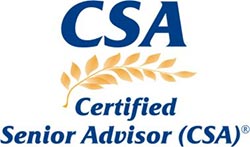As people grow older, visits to the doctor become more frequent. A team of general doctors and assorted specialists are often required to monitor an elderly person’s health and wellbeing. Unexpected complications, perhaps due to changing lifestyle and medications, can be even more serious if not attended to by the appropriate medical expert.
During many of these visits seniors will be instructed to“Do this” and “Take that”. Doctors, despite their authority and attentive care, may have difficulty explaining why the senior is being told to do something. (Not usuallythe doctor’s fault, more on that later.)
Even worse, the senior may not understand how to heed the doctor’s orders. Hearing impairment, faltering mental acuity, and outside distractions all contribute to the senior’s misunderstanding. Perhaps the doctor is talking too fast and using words and phrases that are intimidating.
What happens then? The senior doesn’t follow through, forgets the instruction, ignores it entirely, or does the wrong thing!
No senior should be in this situation. So, what should the adult children or a senior’s caretaker do? Here are five tips:
1) Try to go to the doctor’s appointments and, whenever possible, be in the room when the senior is given their diagnosis, prognosis, and treatment plan. Ask questions and take copies of all paperwork.
2) If an adult family member can’t be there with the senior, consider hiring a geriatric care manager or a companion who will attend the appointments. It’s important someone is there for support, especially if any minor procedures or testing has to be performed.
3) Adult family members should schedule a preemptive consultation to inform the doctor of issues that the senior may otherwise not divulge. Encourage an open line of communication.
4) If the senior must go to the doctor alone, prepare a list of questions in advance of the appointment and have the doctor write down the answers to the questions.
5) Work with a doctor who respects the family members; is familiar with the problems ailing people of a certain age; and does not discount the need for “supervision” by a family member. Any friendly referrals you can find will help identify the right doctor.
Trips to the doctor will become a regular part of a senior’s life as they move into their golden years. It may be difficult for a senior to welcome these occasions, but let’s not forget how critical is a doctor’s advice. Following these five common sense tips will ease the burden of this all-important activity.



